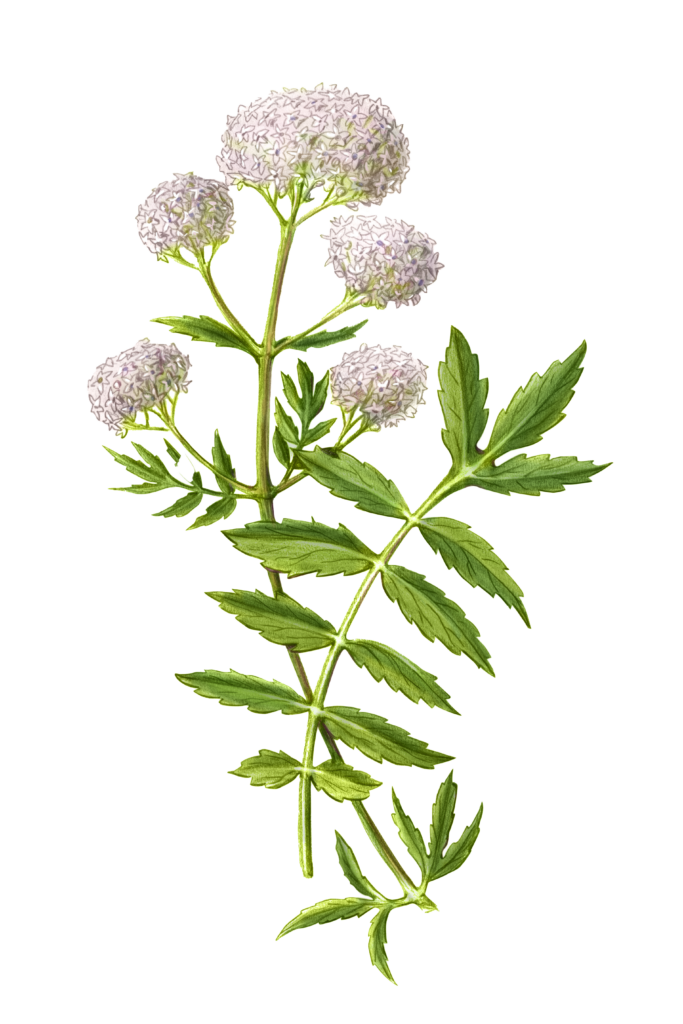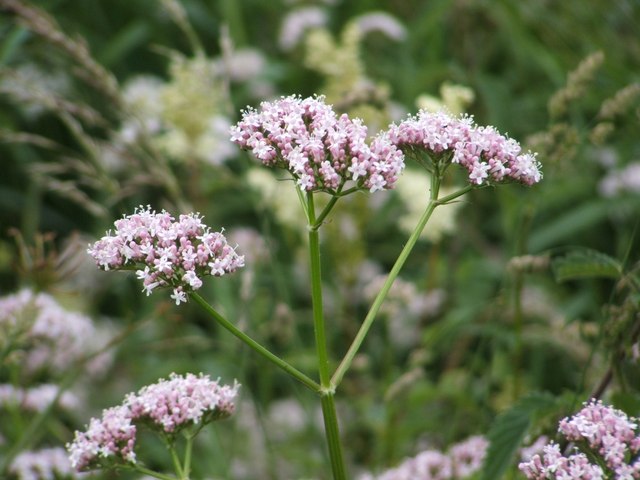
Valerian
Valerian has been used as a medicinal herb since at least the time of ancient Greece and Rome. Hippocrates described its properties, and Galen later prescribed it as a remedy for insomnia. In medieval Sweden, it was sometimes placed in the wedding clothes of the groom to ward off the “envy” of the elves. In the 16th century, the Anabaptist reformer Pilgram Marpeck prescribed valerian tea for a sick woman.
John Gerard’s Herball states that his contemporaries found Valerian “excellent for those burdened and for such as be troubled with croup and other like convulsions, and also for those that are bruised with falls.” He says that the dried root was valued as a medicine by the poor in the north of England and the south of Scotland, so that “no broth or pottage or physicall meats be worth anything if Setewale [Valerian] be not there.”
Other benefits and effects of Valerian:
- Naturally Aids Sleep
- Calms Anxiety
- Lowers Blood Pressure
- Eases Menstrual Cramps
- Improves Stress Management
consult your physician before attempting to heal a serious condition, also if you are on medication such as antidepressants

Buy Smokable Herbs
Product Containing Vanilla Beans
Get To Know The Herbs
Blue Lotus Flower: Purple Tranquility in an Herbal Smoke
Hemp Flower
Mullein
Mugwort
Motherwort
Mate
Marshmallow Leaf
Lobelia
Wormwood
Vanilla Beans
Uva Ursi
Tarragon
Star Anise
Saint Johns Wort
Skullcap
Rose Petals
Peppermint
Passion flower
Lavender Flower
Hops
Holy Basil
Gotu Kola
Ginkgo Biloba
Damiana
Clove
Catnip
Calamus
Calendula
Red Raspberry Leaf
